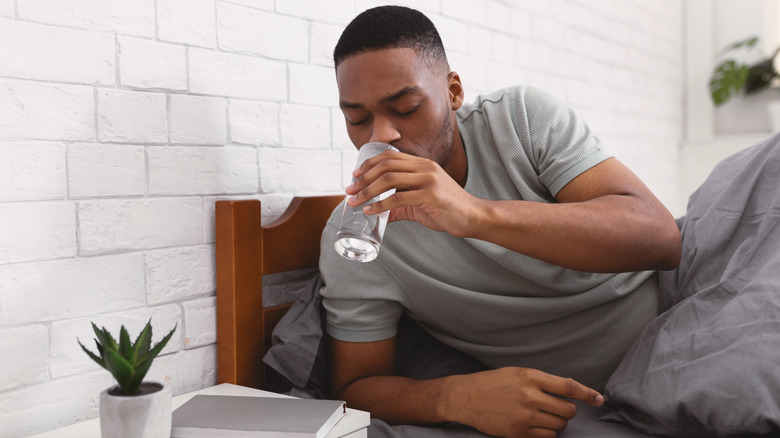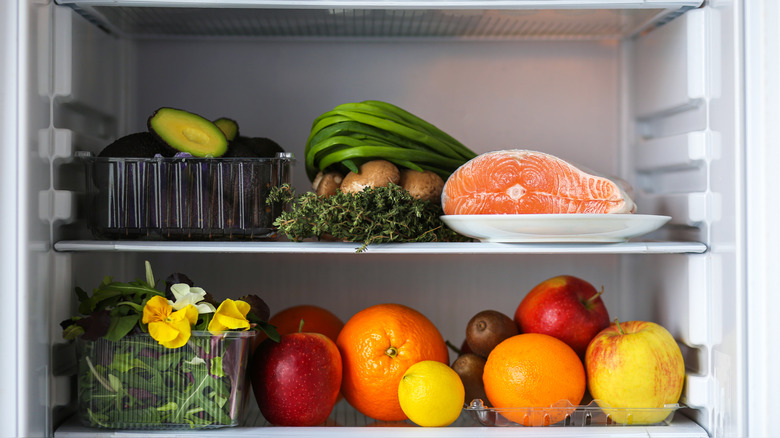Why Hydration And Nutrition Are Key To Helping You Recover From COVID-19
Although the pandemic might be considered over by some, COVID-19 is certainly still lurking in the shadows, wreaking havoc on those it comes into contact with. This means that we shouldn't necessarily put our guards down. Remaining cautious is especially important for older individuals and those with medical conditions like heart disease, who are at greater risk of becoming severely ill if they contract the virus, per the Centers for Disease Control and Prevention.
According to the Commonwealth of Massachusetts, COVID-19 spreads through droplets released during respiratory secretions, like sneezing, coughing, or talking. COVID-19 is caused by the SARS-CoV-2 virus, which is believed to have mutated from infecting only animals to also infecting humans (per Johns Hopkins Medicine). For some people, symptoms of COVID-19 can be relatively mild. For others, they can result in death.
Symptoms of COVID-19 to look out for are fever, trouble breathing, body aches, sore throat, headaches, coughing, congestion, and vomiting. A tell-tale symptom someone might notice is a loss of taste and smell. Symptoms could arise 2 to 14 days after exposure, and someone can unknowingly spread the virus to others before they display any symptoms, states the Mayo Clinic.
If you or someone you love has contracted COVID-19, you know how scary it feels. Making sure to take care of your body by staying hydrated and providing your body with enough nutrients can help to speed up recovery. But why are these factors so imperative to becoming well again?
How hydration and nutrition aid COVID-19 healing
During the recovery phase of COVID-19, it's essential to eat the right foods and drink plenty of fluids. According to a 2020 article published in the Pakistan Journal of Medical Sciences, the ancient Greek physician Hippocrates once stated, "let food be thy medicine, and medicine be thy food."
Nutrition and hydration promote healing because they help to strengthen one's immune system, clinical dietician Andrea Manley tells St. Joseph's/Candler. During the course of a high fever, which can lead to sweating and dehydration, she stresses the importance of drinking fluids. To ensure that you are getting enough nutrients throughout the day, Manley suggests eating small meals instead of large ones. To stay hydrated, she recommends drinking plenty of water, or drinking fluids containing electrolytes.
As explained by Healthline, it can be helpful to eat foods containing high amounts of vitamin D, such as canned light tuna, sardines, salmon, and egg yolk. You could also drink fortified orange juice, which is believed to be as effective as a vitamin D supplement (per Florida Orange Juice). Researchers believe that vitamin D plays a role in protecting the lungs after contracting COVID-19 (per Healthline).
Additionally, zinc is an essential mineral to have in your diet when recovering from the virus. Zinc protects the lungs, and has antioxidant and anti-inflammatory properties that aid the immune system. Some foods that are high in zinc are ground beef, dark chocolate, cashew nuts, and hemp seeds, reports Healthline.


